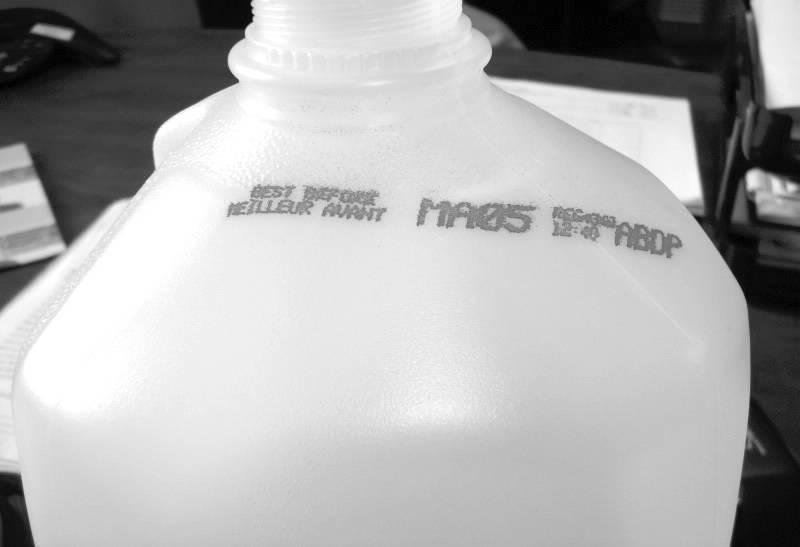Milk containers will cost up to 27 cents more at the till by Monday, according to the province, but will also be worth hard cash at the bottle depot.
Alberta will add a 10 to 25 cent deposit to its milk and dairy containers on June 1, according to Alberta Environment. The province announced the change last fall as a way to keep more milk bottles out of the dump.
The change affects all milk, cream, drinkable yoghurt and meal-replacement drink containers that hold over 30 millilitres, says Leanne Stangeland, spokesperson for the Beverage Container Management Board, which runs Alberta's bottle depots. Containers that hold a litre or less will have a 10-cent deposit, while bigger ones will have a 25-cent one. "You can get that money back by returning them to any bottle depot."
These jugs and cartons will also have an additional non-refundable recycling fee of one to four cents, Stangeland says. This replaces the current two-cent fee the Alberta Dairy Producers charges under its voluntary recycling program. A four-litre jug of milk will now cost 27 cents more as a result.
This makes Alberta the first place in Canada, and possibly North America, to put a deposit on milk containers, notes Christina Seidel, executive director of the Recycling Council of Alberta. "The world is watching us."
More recycling ahead
Albertans buy about 2 billion beverage containers a year, according to Alberta Environment, but recycle just 75 per cent of them — the other 500 million end up in the landfill. Milk containers are among the worst performers, with just 60 per cent of jugs and 23 per cent of cartons being recycled. The province's container recycling goal is 85 per cent.
Adding a deposit to milk containers should encourage more people to recycle them, Stangeland says. "It's a great way to keep plastic out of the landfill."
Milk containers marked with "AB DEPOSIT" in red or black ink next to the expiration date have a deposit on them, Stangeland says, and should be arriving in stores this weekend. Depots will take unmarked milk containers, but won't give you money for them.
People have been bringing milk jugs to the Campbell Park Bottle Depot ever since the change was announced last year, says owner Sam Mahal. "They said, 'oh, we heard on the news that you would take milk containers,'" he says, after which he had to explain to them that the deposit didn't kick in until June 1.
"Milk containers are really smelly," he adds, and he urged people to rinse them with cold water before bringing them to the depot. He expects to see about two to three sacks of them a week now that the deposit is active.
St. Albert will keep its milk container bin around for a few weeks until people adapt to the change, said Bob Stephen, city manager of municipal operations. After that, residents should bring them to a bottle depot or put them into a curbside recycling bag after July 1.
Removing the bin will have little effect on the yard's revenue, Stephen says, since it never received many containers. "I'd rather see them go into [the deposit system] than into the landfill."
The province increased deposits on many non-milk containers by a nickel last fall, Stangeland says. Initial results suggest this may have caused a two to three per cent spike in recycling rates.
Mahal says he's had to hire more staff to handle the load. "It used to be people would throw the bottle in the garbage because it was only five cents," he says, but now many are worth twice as much. "That's a huge difference."
Details on milk recycling can be found at www.bcmb.ab.ca.




